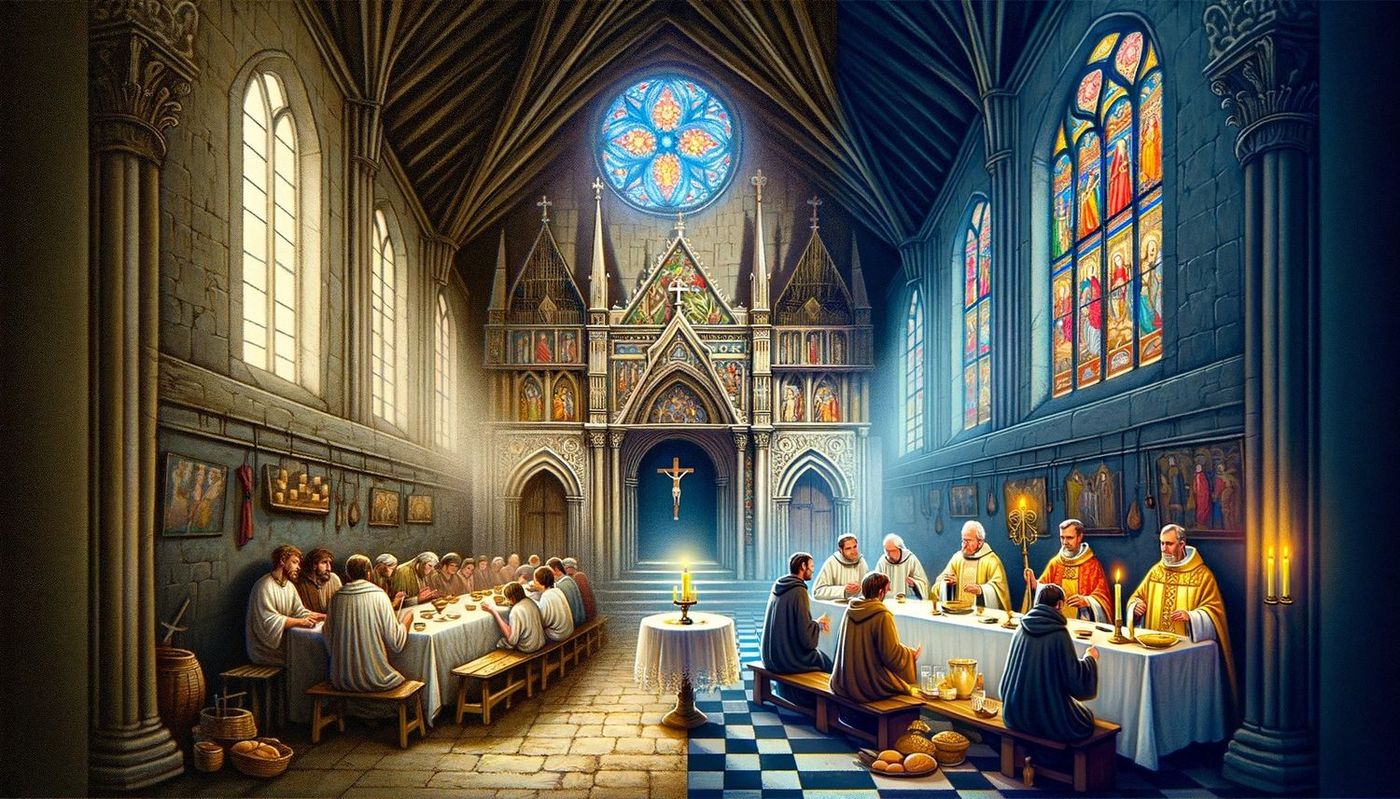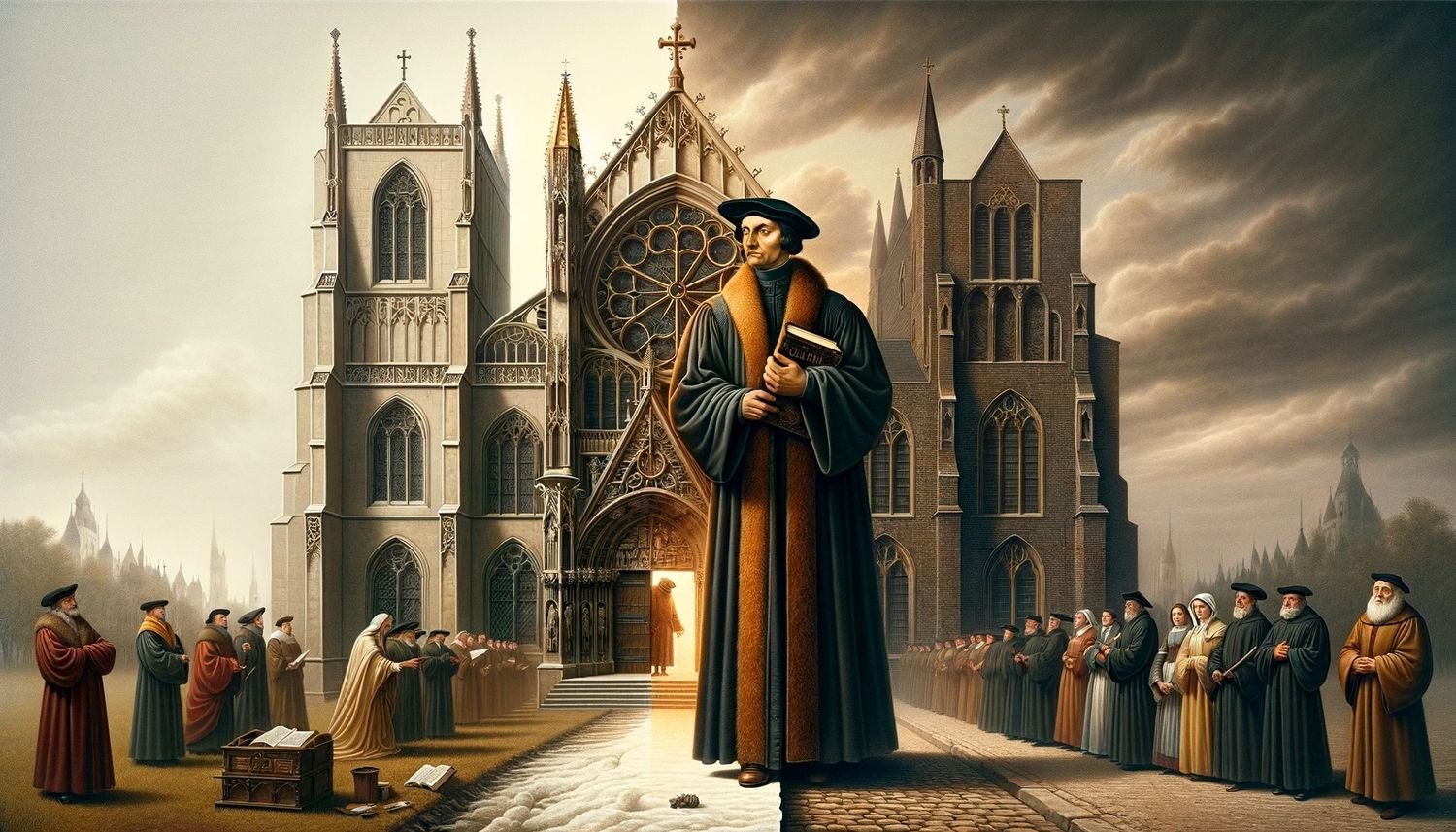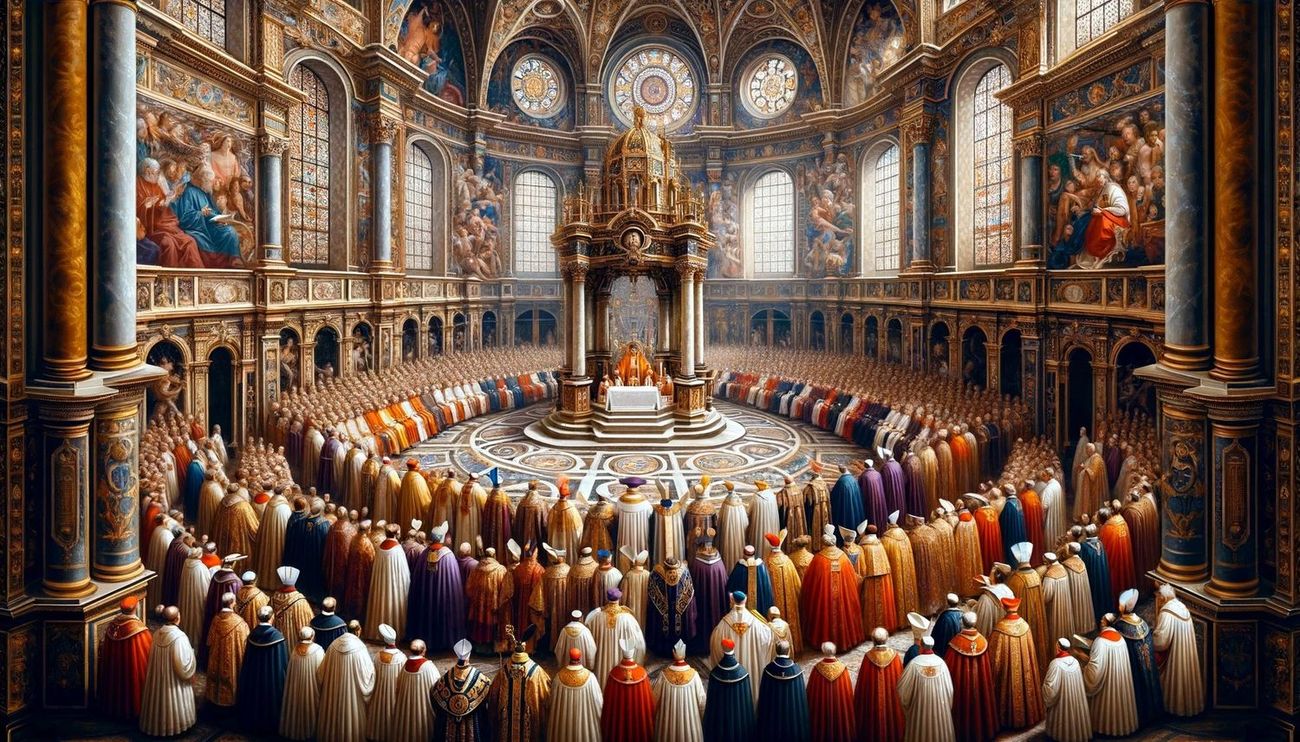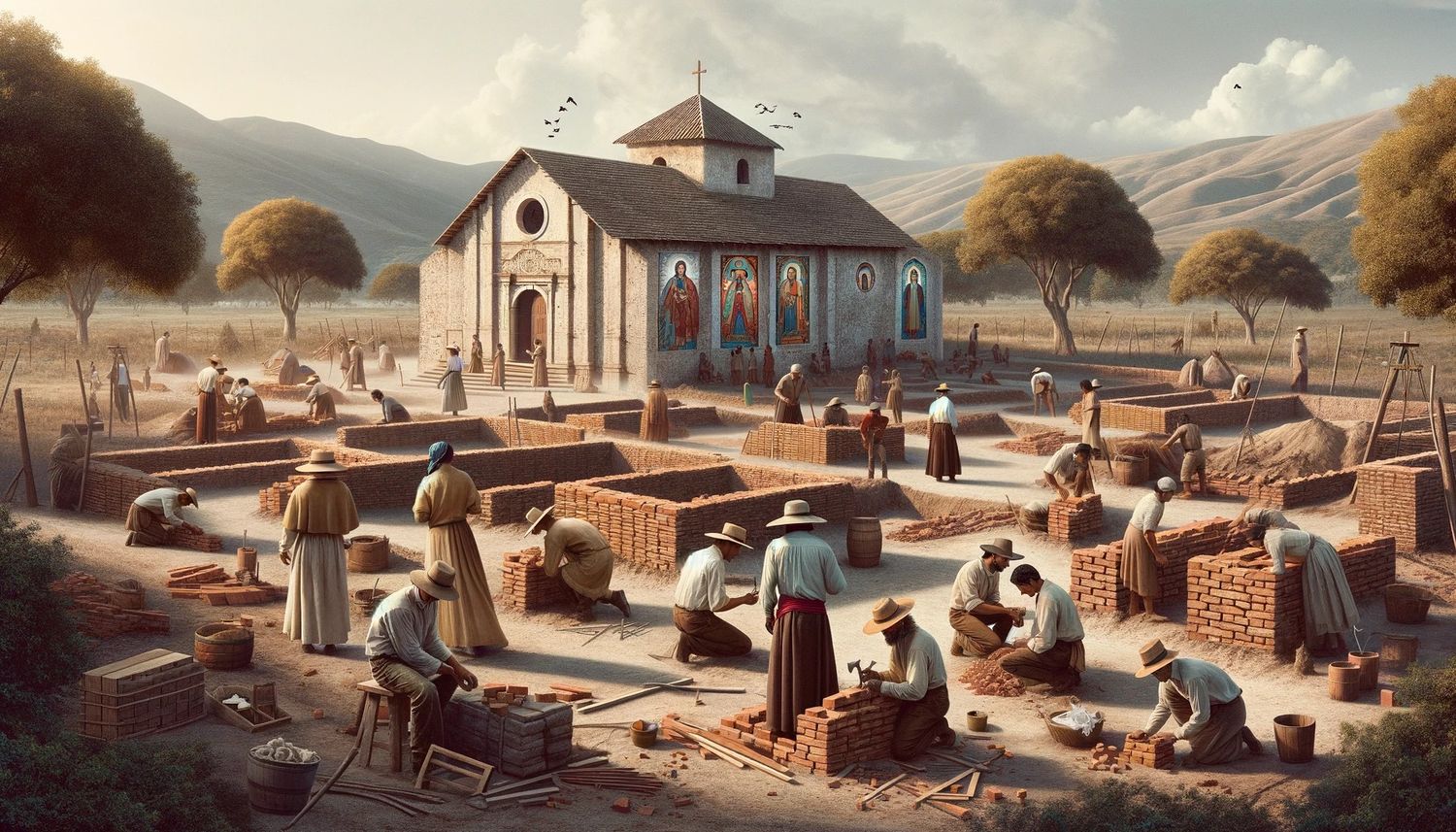Home>Theology and Spirituality>Which Order Of Monks Spread Catholicism Around The World And Built Universities?
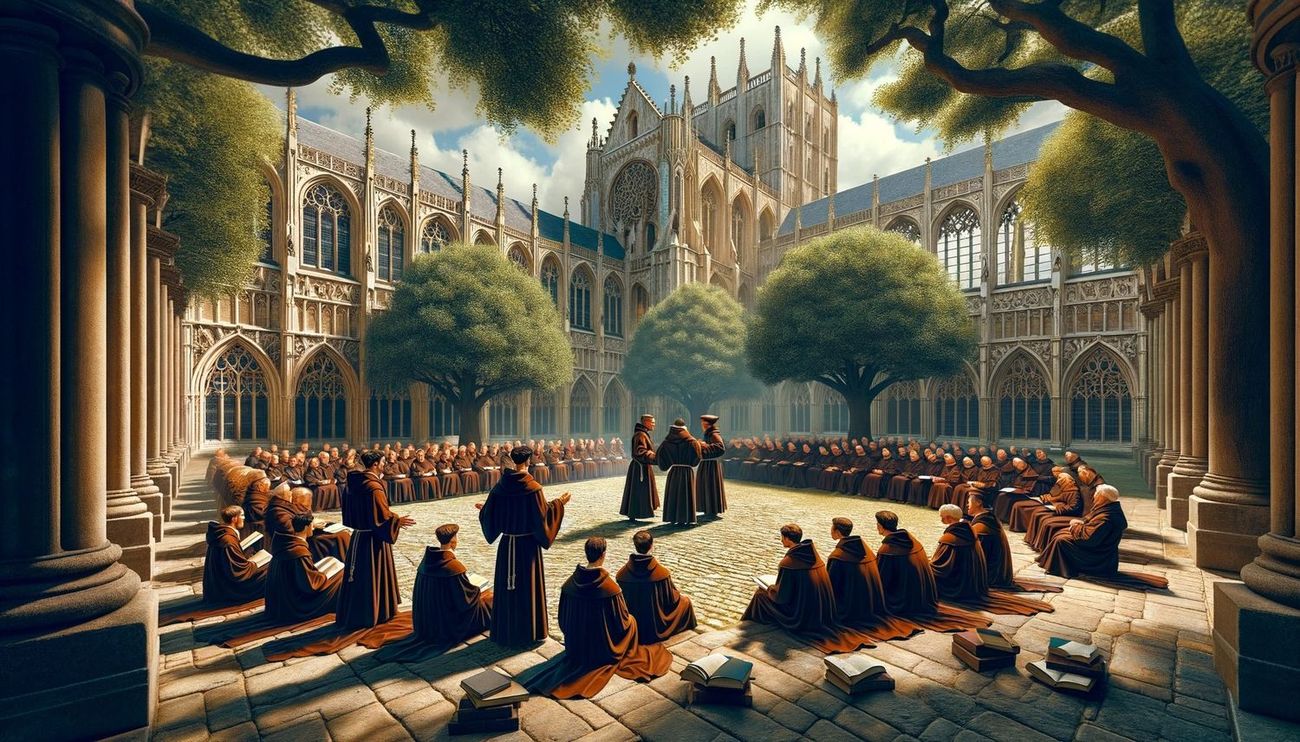

Theology and Spirituality
Which Order Of Monks Spread Catholicism Around The World And Built Universities?
Published: February 17, 2024
Jason DeRose, Managing Editor at Christian.net, uses his expertise in religion and journalism to deepen understanding of faith's societal impacts. His editorial leadership, coupled with a strong academic background, enriches the platform’s diverse content, earning him recognition in both journalism and religious circles.
Discover the influential order of monks who spread Catholicism globally and established renowned universities. Explore the rich history of theology and spirituality.
(Many of the links in this article redirect to a specific reviewed product. Your purchase of these products through affiliate links helps to generate commission for Christian.net, at no extra cost. Learn more)
Introduction
The spread of Catholicism around the world and the establishment of universities are deeply intertwined with the history of various monastic orders. These orders, driven by a profound sense of devotion and a commitment to scholarship, played pivotal roles in shaping the spiritual and educational landscapes of different regions. Each order brought its unique approach to missionary work and education, leaving an indelible mark on the global spread of Catholicism and the advancement of learning.
Throughout history, several orders of monks have made significant contributions to the propagation of Catholicism and the founding of universities. The Benedictines, Franciscans, Dominicans, and Jesuits stand out as prominent examples of these influential orders. Each order has its own distinct traditions, values, and methods, reflecting the diverse ways in which they have contributed to the expansion of Catholicism and the development of educational institutions.
As we delve into the stories of these remarkable orders, we will uncover the profound impact they have had on the world, both spiritually and intellectually. From the tranquil cloisters of Benedictine monasteries to the bustling streets where Franciscan friars ministered to the poor, each order's journey is a testament to the enduring power of faith and knowledge. Join us on a captivating exploration of the Benedictines, Franciscans, Dominicans, and Jesuits as we unravel the rich tapestry of their historical significance and enduring legacies.
The Benedictines
The Benedictines, also known as the Order of Saint Benedict, have left an indelible mark on the spread of Catholicism and the establishment of educational institutions. Founded by Saint Benedict of Nursia in the 6th century, this monastic order has a rich legacy of spirituality, scholarship, and missionary zeal.
The Benedictines are renowned for their commitment to a life of prayer, work, and community. Their monasteries, characterized by a peaceful and contemplative atmosphere, became centers of spiritual devotion and intellectual pursuit. The Rule of Saint Benedict, a guide for communal living and spiritual growth, became a cornerstone of monastic life and exerted a profound influence on Western Christian spirituality.
One of the most remarkable contributions of the Benedictines to the spread of Catholicism was their missionary endeavors. As the order expanded, Benedictine monks ventured into distant lands, carrying the message of Christianity to regions far beyond their European origins. Their missionary zeal led to the establishment of monasteries and churches in diverse cultural settings, contributing to the global diffusion of Catholicism.
In addition to their missionary work, the Benedictines played a pivotal role in the development of education. Monasteries served as centers of learning, where manuscripts were meticulously copied, preserved, and studied. The Benedictine commitment to scholarship laid the groundwork for the founding of some of the earliest universities in Europe, fostering a tradition of intellectual inquiry and academic excellence.
Furthermore, the Benedictines made significant contributions to the fields of agriculture, medicine, and the arts, enriching the cultural and intellectual landscape of the medieval world. Their monastic libraries preserved invaluable texts from classical antiquity, ensuring the transmission of knowledge across generations.
The enduring legacy of the Benedictines is evident in the enduring presence of their monasteries and educational institutions around the world. Their unwavering dedication to prayer, labor, and learning continues to inspire seekers of spiritual wisdom and knowledge, making the Benedictines a beacon of faith and scholarship in the tapestry of Catholic history.
In summary, the Benedictines have played a pivotal role in the global spread of Catholicism and the establishment of universities, leaving an indelible legacy of spirituality, scholarship, and missionary zeal.
The Franciscans
The Franciscans, formally known as the Order of Friars Minor, have profoundly influenced the global spread of Catholicism and the establishment of educational institutions. Founded by Saint Francis of Assisi in the early 13th century, the Franciscan order embodies a spirit of radical poverty, humility, and unwavering devotion to the teachings of Jesus Christ.
Saint Francis of Assisi's radical commitment to living in solidarity with the poor and marginalized became the cornerstone of the Franciscan charism. The friars, inspired by the example of their founder, embarked on missionary journeys to distant lands, carrying the message of God's love and compassion to people from diverse cultural backgrounds. Their missionary zeal led to the establishment of Franciscan communities across Europe, Africa, Asia, and the Americas, contributing significantly to the global expansion of Catholicism.
One of the most distinctive aspects of the Franciscan mission was their emphasis on itinerant preaching and ministering to the marginalized. The friars ventured into bustling city streets, remote villages, and even to the courts of sultans, fearlessly proclaiming the Gospel and offering solace to those in need. Their dedication to serving the poor, the sick, and the marginalized endeared them to people from all walks of life, fostering a deep sense of spiritual kinship and solidarity.
In addition to their missionary endeavors, the Franciscans played a pivotal role in the establishment of educational institutions. The order's commitment to learning and scholarship led to the founding of renowned universities and schools, where the friars imparted knowledge, wisdom, and spiritual guidance to countless students. The Franciscan intellectual tradition, characterized by a harmonious blend of faith and reason, contributed to the flourishing of theological, philosophical, and scientific inquiry during the medieval and Renaissance periods.
Furthermore, the Franciscans made significant contributions to the fields of art, literature, and music, enriching the cultural tapestry of the societies they encountered. The order's reverence for the beauty of creation and the expression of divine truth through artistic endeavors left an enduring mark on the artistic heritage of various regions.
The enduring legacy of the Franciscans is evident in the continued presence of their friaries, educational institutions, and charitable works around the world. Their unwavering commitment to living the Gospel values of poverty, humility, and compassion continues to inspire individuals to embrace lives of simplicity, service, and spiritual depth.
In summary, the Franciscans have played a pivotal role in the global spread of Catholicism and the establishment of universities, leaving an indelible legacy of missionary zeal, intellectual pursuit, and compassionate service to humanity.
The Dominicans
The Dominicans, officially known as the Order of Preachers, have played a pivotal role in the global spread of Catholicism and the establishment of educational institutions. Founded by Saint Dominic de Guzmán in the early 13th century, the Dominican order embodies a profound commitment to preaching, teaching, and scholarly inquiry.
Saint Dominic's vision for the order was rooted in a fervent dedication to combating heresy and promoting theological understanding. The friars, inspired by their founder's zeal for preaching the Gospel, embarked on extensive missionary journeys, carrying the light of Catholic faith to regions across Europe, Africa, and Asia. Their unwavering commitment to intellectual engagement and theological discourse enabled them to engage with diverse cultural and religious contexts, fostering a spirit of dialogue and understanding.
One of the most distinctive aspects of the Dominican mission was their emphasis on preaching as a means of evangelization and spiritual edification. The friars, renowned for their eloquence and erudition, ventured into bustling marketplaces, town squares, and university halls, fearlessly proclaiming the truths of the Catholic faith and engaging in theological debates. Their dedication to articulating the richness of Catholic theology and engaging with the intellectual currents of their time contributed significantly to the spiritual renewal of the Church and the conversion of countless souls.
In addition to their missionary endeavors, the Dominicans made significant contributions to the establishment of educational institutions. The order's commitment to scholarly pursuits and intellectual rigor led to the founding of renowned universities and schools, where the friars imparted theological, philosophical, and scientific knowledge to eager minds. The Dominican intellectual tradition, characterized by a harmonious synthesis of faith and reason, contributed to the flourishing of theological scholarship and philosophical inquiry during the medieval and Renaissance periods.
Furthermore, the Dominicans made enduring contributions to the fields of theology, philosophy, and the arts, enriching the cultural and intellectual landscape of the societies they encountered. The order's commitment to rigorous intellectual inquiry and the pursuit of truth left an indelible mark on the development of Western thought and the preservation of classical learning.
The enduring legacy of the Dominicans is evident in the continued presence of their priories, educational institutions, and scholarly publications around the world. Their unwavering commitment to preaching the Gospel, engaging in theological discourse, and fostering a spirit of intellectual inquiry continues to inspire individuals to embrace lives of contemplation, study, and spiritual discernment.
In summary, the Dominicans have played a pivotal role in the global spread of Catholicism and the establishment of universities, leaving an indelible legacy of missionary zeal, intellectual engagement, and scholarly pursuit.
The Jesuits
The Society of Jesus, commonly known as the Jesuits, stands as a formidable force in the global spread of Catholicism and the establishment of educational institutions. Founded by Saint Ignatius of Loyola in the 16th century, the Jesuit order embodies a spirit of intellectual rigor, missionary zeal, and unwavering commitment to serving others.
Saint Ignatius of Loyola's vision for the Society of Jesus was rooted in a profound dedication to the service of God and humanity. The Jesuits, inspired by their founder's transformative spiritual experiences, embarked on missionary journeys to far-flung corners of the world, carrying the message of God's love and salvation to diverse cultural landscapes. Their missionary zeal led to the establishment of Jesuit missions and communities across Europe, Asia, Africa, and the Americas, contributing significantly to the global expansion of Catholicism.
One of the most distinctive aspects of the Jesuit mission was their emphasis on education as a means of fostering spiritual growth and intellectual inquiry. The order's commitment to scholarship and academic excellence led to the founding of renowned educational institutions and universities, where the Jesuits imparted knowledge, wisdom, and spiritual guidance to countless students. The Jesuit educational tradition, characterized by a holistic approach to learning and a commitment to the pursuit of knowledge, contributed to the flourishing of scientific, philosophical, and theological inquiry during the Renaissance and Enlightenment periods.
Furthermore, the Jesuits made enduring contributions to the fields of science, literature, and the arts, enriching the cultural and intellectual landscape of the societies they encountered. The order's embrace of scientific inquiry and the promotion of literature and the arts left an indelible mark on the development of Western thought and the preservation of cultural heritage.
The enduring legacy of the Jesuits is evident in the continued presence of their educational institutions, missions, and charitable works around the world. Their unwavering commitment to intellectual inquiry, missionary service, and the promotion of justice and solidarity continues to inspire individuals to embrace lives of learning, service, and spiritual discernment.
In summary, the Jesuits have played a pivotal role in the global spread of Catholicism and the establishment of universities, leaving an indelible legacy of missionary zeal, intellectual pursuit, and compassionate service to humanity.
Read more: Where Did Catholicism Spread
Conclusion
In conclusion, the Benedictines, Franciscans, Dominicans, and Jesuits have each made profound and lasting contributions to the global spread of Catholicism and the establishment of educational institutions. These monastic orders, driven by a deep sense of devotion, scholarship, and missionary zeal, have left an indelible mark on the spiritual and intellectual landscapes of diverse regions.
The Benedictines, with their commitment to a life of prayer, work, and community, became centers of spiritual devotion and intellectual pursuit. Their missionary endeavors and dedication to scholarship laid the groundwork for the founding of some of the earliest universities in Europe, fostering a tradition of intellectual inquiry and academic excellence.
Similarly, the Franciscans, inspired by the radical commitment to living in solidarity with the poor and marginalized, embarked on missionary journeys to distant lands, contributing significantly to the global expansion of Catholicism. Their emphasis on itinerant preaching and compassionate service endeared them to people from all walks of life, fostering a deep sense of spiritual kinship and solidarity.
The Dominicans, with their fervent dedication to preaching, teaching, and scholarly inquiry, engaged in extensive missionary journeys, carrying the light of Catholic faith to regions across the world. Their commitment to intellectual engagement and theological discourse contributed significantly to the spiritual renewal of the Church and the conversion of countless souls.
Lastly, the Jesuits, driven by a spirit of intellectual rigor and missionary zeal, established missions and communities across the globe, contributing significantly to the global expansion of Catholicism. Their emphasis on education as a means of fostering spiritual growth and intellectual inquiry led to the founding of renowned educational institutions and universities, shaping the intellectual landscape of different societies.
Collectively, these monastic orders have enriched the world with their unwavering commitment to faith, scholarship, and service. Their enduring legacies continue to inspire individuals to embrace lives of contemplation, study, and compassionate outreach, ensuring that their contributions to the global spread of Catholicism and the advancement of learning will be celebrated for generations to come.





